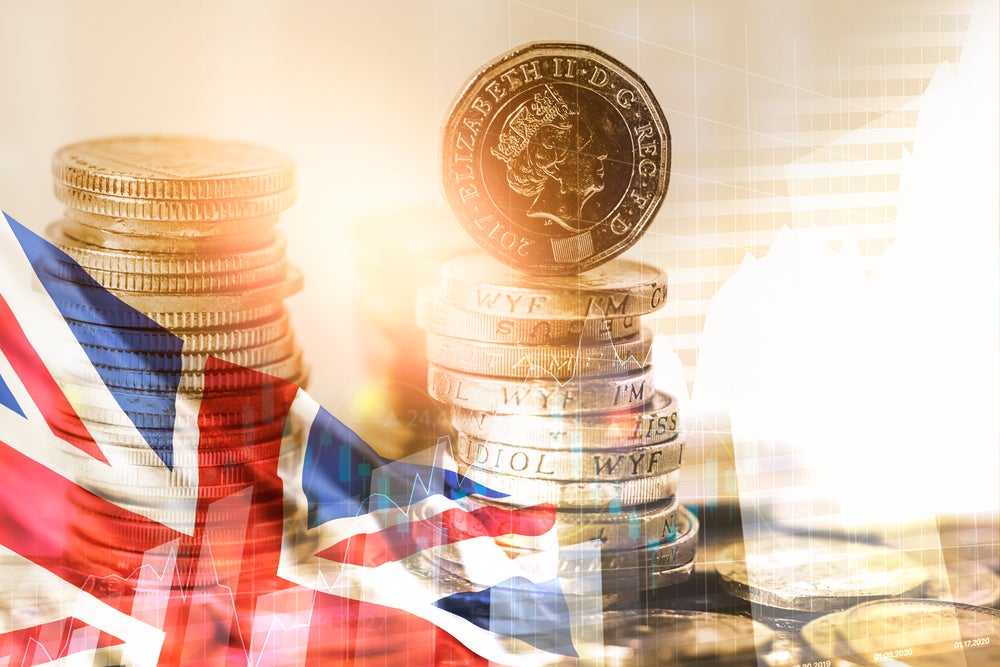There is bad news for climate sceptics who still sit at national parliaments, company boardrooms and, more importantly, CFOs suites. Bad news for those who still put short-term profits above long-term sustainability -regardless of the price.
At a summit held yesterday in London marking the tenth anniversary of the Prince’s Accounting for Sustainability Project (A4S), a charity committed to exploring the role of accountants in facilitating a sustainable economy, the Prince of Wales left a clear message to those who still deny climate change.
Quoting a 2014 report of the International Panel on Climate Change, Prince Charles said the severe, pervasive and irreversible consequences of climate change could be beyond our capacity to rectify, if unchecked.
"These consequences include what we are already seeing in the form of ever more extreme weather events that damage our infrastructure, sea level rise threatening coastal cities and the disruption of weather patterns vital for agriculture to feed a growing population," Prince Charles said in his keynote speech.
His words seemed more topical than in previous A4S summits, as world leaders meet at the UN climate summit in Peru. There is mounting pressure for them to reach a global agreement to reduce carbon emissions before the end of the summit on Friday and compensate the 2009 fiasco in Copenhagen.
Yesterday summit in London, however, focused on the close relationship between finance and sustainability, which is the rationale behind the joint work of the A4S and the accounting community.
How well do you really know your competitors?
Access the most comprehensive Company Profiles on the market, powered by GlobalData. Save hours of research. Gain competitive edge.

Thank you!
Your download email will arrive shortly
Not ready to buy yet? Download a free sample
We are confident about the unique quality of our Company Profiles. However, we want you to make the most beneficial decision for your business, so we offer a free sample that you can download by submitting the below form
By GlobalDataIn the words of Prince Charles this is "to dispel the idea that there is necessarily a choice between making money on the one hand and ‘doing the right thing’ on the other".
But accountants are instrumental to recognise that to carry on ‘business as usual’ is not sustainable in the first place.
"I could see that accountants would need to develop the practical tools required to design and build sustainable organisations, and ultimately the sustainable economy we so desperately need," Prince Charles said.
And that was really the focus of the A4S summit: despite the progress made in sustainability there is a long way ahead.
A touchy-feely issue?
To highlight the evolution and change in attitudes within the finance community, A4S executive chairman Jessica Fries brought to light a survey the Institute of Chartered Accountants in England and Wales (ICAEW) conducted among its members in 2003.
Back then, 63% of them didn’t see environmental or social issues as being part of an accountant’s responsibility, with some of them making remarks such as "these issues are not the business of an accountant" or "isn’t this survey a waste of time?"
Although the most interesting quote came from one member who answered: "What a mess this country is in because of our focus on touchy-feely issues?"
As Fries pointed out, the new generations of accountants are more aware of the challenges ahead.
More recent research conducted by different global accounting bodies showed that more than 80% of their students believe sustainability is a relevant issue for their qualification in finance.
A recent joint survey by the Chartered Institute of Management Accountants and the American Institute of Certified Public Accountants, showed similar rate of awareness, 88%, among their African members -compared to an average of 65% among their peers in Western economies.
From a SMEs perspective Institute of Directors (IoD) chairman Ian Dormer, who runs an engineering SME, said smaller companies are crucial for the sustainability agenda.
"The overwhelming number of UK businesses is small firms. But they are all plugged to the global supply chain. Without convincing them that sustainability is in their interest, the aims we share will be much harder to achieve," Dormer said.
National Grid finance director Andrew Bonfield broadened the scope of sustainability to include corporate tax avoidance issues. "It has to do with our companies playing their part in society and paying fair taxes," he said.
From a CFO perspective, he said, this is not just CSR (Corporate Social Responsibility) but a way to make sure the bottom line that shareholders want is delivered.
"Yes we all have short-term pressures. But if sustainability is not part of our strategy, how long do you expect to be around for?" Bonfield rhetorically asked, adding that investors would be the first to benefit from long-term business strategies.
Investors
But do investors care about sustainability? That was the question tackled during a panel discussion where Sainsbury’s CFO John Rogers said it would be too harsh to exclusively blame investors.
"I suppose the onus is on CFOs to make sure that we are getting the message across, that we are highlighting the importance of sustainability within our business plans."
A member of the panel, David Blood, co-founder of the Generation Investment Management, a long-term focused investment partnership, noted that not all investors belong to the same type.
"It’s important to differentiate that there are long-term investors, who may or may not be focused on sustainability specifically, but indeed in the long-term assessment of investments. And then there are traders."
If one of the issues is the short-term focus of traders, what can we do about it, asked the panel from the floor Christianna Wood, chairman of the Global Reporting Initiative and a US institutional investor herself.
Blood answered that there are increasingly more long-term investors in the financial system. However, he said, they often confuse themselves and think as traders.
"They become very focused on quarterly performance; we need to move away from all that. Long-term investors are structural for a more sustainable economy."
Then, again from the floor, a delegate brought the issue of incentives in the financial services industry.
"If you look at the incentives of brokers, their business models; if you look at the incentives of investment consultants. You’ll find that being short-term focused and promoting trading, improves profitability for them."
He stressed that such a system of incentives is undermining sustainability and said accounting help to challenge it and change it.
"Accounting can change incentives because we can start using the data from the corporate disclosures to show clients where the money is being invested, what kind of sustainability profile is in the portfolio. At the moment the data is improving but is still not particular pervasive," he said.
Sustainability is indeed a tone at the top priority. The same day the A4S summit was being held in London, the US secretary of state John Kerry paid an unexpected visit to negotiators in Lima.
"If you are a big developed nation and you are not helping to lead then you are part of the problem," Kerry said.
At his closing keynote speech in London Prince Charles joked: "I did my best to account for a little bit of sustainability by walking here."
Step by step the message of sustainability permeates the finance world but the time is ticking while everyone looks at the outcome of Lima climate talks.






